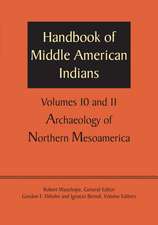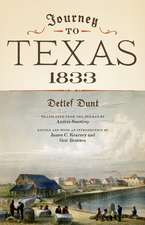Sin and Confession in Colonial Peru: Spanish-Quechua Penitential Texts, 1560-1650
Autor Regina Harrisonen Limba Engleză Paperback – iun 2014
In Sin and Confession in Colonial Peru, Harrison draws directly from confession manuals to demonstrate how sin was newly defined in Quechua lexemes, how the role of women was circumscribed to fit Old World patterns, and how new monetized perspectives on labor and trade were taught to the subjugated indigenous peoples of the Andes by means of the Ten Commandments. Although outwardly confession appears to be an instrument of oppression, the reformer Bartolomé de Las Casas influenced priests working in the Andes; through their agency, confessional practice ultimately became a political weapon to compel Spanish restitution of Incan lands and wealth. Bringing together an unprecedented study (and translation) of Quechua religious texts with an expansive history of Andean and Spanish transculturation, Harrison uses the lens of confession to understand the vast and telling ways in which language changed at the intersection of culture and religion.
Preț: 263.54 lei
Nou
Puncte Express: 395
Preț estimativ în valută:
50.43€ • 52.78$ • 41.97£
50.43€ • 52.78$ • 41.97£
Carte tipărită la comandă
Livrare economică 31 martie-14 aprilie
Preluare comenzi: 021 569.72.76
Specificații
ISBN-13: 9781477307588
ISBN-10: 1477307583
Pagini: 326
Dimensiuni: 152 x 229 x 20 mm
Greutate: 0.48 kg
Editura: University of Texas Press
Colecția University of Texas Press
ISBN-10: 1477307583
Pagini: 326
Dimensiuni: 152 x 229 x 20 mm
Greutate: 0.48 kg
Editura: University of Texas Press
Colecția University of Texas Press
Notă biografică
Regina Harrison is Professor of Spanish, School of Languages, Literatures, and Cultures; Professor of Comparative Literature, Department of English; and Affiliate Professor of Anthropology at the University of Maryland, College Park. She is the author of the award-winning Signs, Songs, and Memory in the Andes: Translating Quechua Language and Culture and Entre el tronar épico y el llanto elegíaco: simbología indígena en la poesía ecuatoriana siglos XIX y XX.
Cuprins
Preface
Introduction
1. Confession and Restitution in the Andes: Las Casas' Avisos y reglas
2. Converts to Confession: From Ychu- (With Straws) to Confessacu- (As a Christian)
3. Dictionary Definitions: Sin (Hucha) and Flesh (Aycha)
4. Codifying Sexuality: Huchallicu- (to Sin, Fornicate), Huaça- (to Have "Improper" Sex)
5. Confessing Commerce in the Plaza: Ranti-, Catu-, Manu-
6. Confessing Work and Laborers: Llamca-, Mit'a-, Mink'a-
Conclusion. Wills as Quasi-Confession: Testamentocta Quellca
Notes
Bibliography
Index
Introduction
1. Confession and Restitution in the Andes: Las Casas' Avisos y reglas
2. Converts to Confession: From Ychu- (With Straws) to Confessacu- (As a Christian)
3. Dictionary Definitions: Sin (Hucha) and Flesh (Aycha)
4. Codifying Sexuality: Huchallicu- (to Sin, Fornicate), Huaça- (to Have "Improper" Sex)
5. Confessing Commerce in the Plaza: Ranti-, Catu-, Manu-
6. Confessing Work and Laborers: Llamca-, Mit'a-, Mink'a-
Conclusion. Wills as Quasi-Confession: Testamentocta Quellca
Notes
Bibliography
Index
Recenzii
"What sets this book apart from other works on Andean conversion is its blend of European and Andean source material. The author and publisher should be congratulated also for the inclusion of original quotes. This will go a long way toward helping future scholars."
Descriere
Drawing from Spanish ecclesiastic literature written in Quechua, the language of the Incas, Sin and Confession in Colonial Peru is the first detailed study of how the European sacrament of confession was implemented in the early modern context of the Ande

















